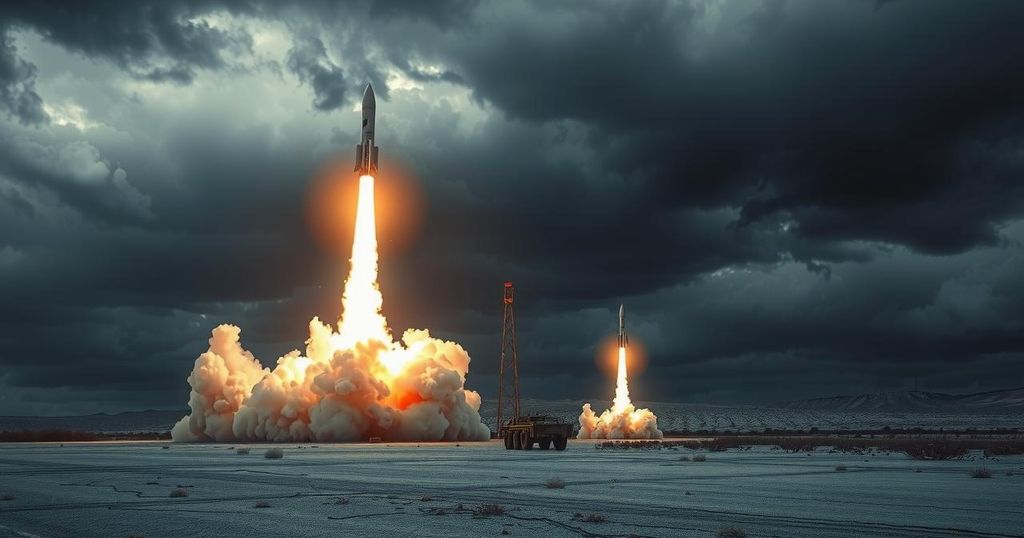North Korea has launched ballistic missiles off its western coast, indicating continued missile tests despite Donald Trump’s recent return to power. The launches are connected to North Korea’s objections to U.S.-South Korea military exercises and are a response to ongoing geopolitical tensions, including North Korea’s alliance with Russia.
North Korea has conducted a series of ballistic missile launches from its western coast, the first since Donald Trump took office again. This action indicates Pyongyang’s continued engagement in missile tests despite political changes in the United States, as reported by Bloomberg. The South Korean Joint Chiefs of Staff confirmed that at least two missiles were launched from Hwanghae Province, with further details pending. Yonhap News suggested these could be short-range ballistic missiles.
These missile tests followed North Korea’s critical remarks regarding the joint military exercises between the United States and South Korea, which commenced on March 10. North Korea characterized these drills as rehearsals for war. In response, South Korea’s military ramped up monitoring efforts and maintained readiness with U.S. cooperation amid the tensions surrounding North Korea’s military activities.
The U.S.-South Korea Freedom Shield 25 exercise, ongoing until March 20, has been timed with North Korea’s escalating military ties with Russia. Notably, this marks the first military drill since Trump returned to office, set against a backdrop of North Korea’s threats to enhance its nuclear arsenal. Earlier missile tests in 2023 include a strategic cruise missile launch observed by Kim Jong Un and an intermediate-range missile test on January 6.
During his initial term, Trump had suspended or diminished certain major U.S.-South Korean military drills following negotiations with Kim, which ultimately faltered. Recently, Kim asserted that confrontation with adversarial nations is “inevitable” and called for bolstering North Korea’s nuclear capacity shortly following Trump’s inauguration.
The missile launch also occurs amidst political instability in Seoul following President Yoon Suk Yeol’s brief imposition of martial law in December and subsequent impeachment proceedings. Many of the missiles recently tested are part of the Hwasong-11 series, designed to deliver heavy payloads, including nuclear warheads.
Moreover, both the United States and South Korea have accused Kim of supplying Russia with missiles to aid its involvement in the conflict in Ukraine. Kim’s alliance with Putin raises significant concerns about North Korea’s military enhancements, bolstered by Russian support. Recent intelligence from South Korea suggests that North Korea may have sent additional troops to assist Russian forces following the dispatch of thousands of soldiers in the preceding year.
In summary, North Korea’s recent ballistic missile launches reflect its ongoing commitment to missile testing, exacerbated by military exercises conducted by the United States and South Korea. This situation underscores Pyongyang’s determination to enhance its nuclear capabilities amidst significant geopolitical tensions, particularly in relation to its partnership with Russia. Political instability within South Korea further complicates the landscape, highlighting the continued risks posed by North Korea’s military ambitions and international alliances.
Original Source: newsukraine.rbc.ua




